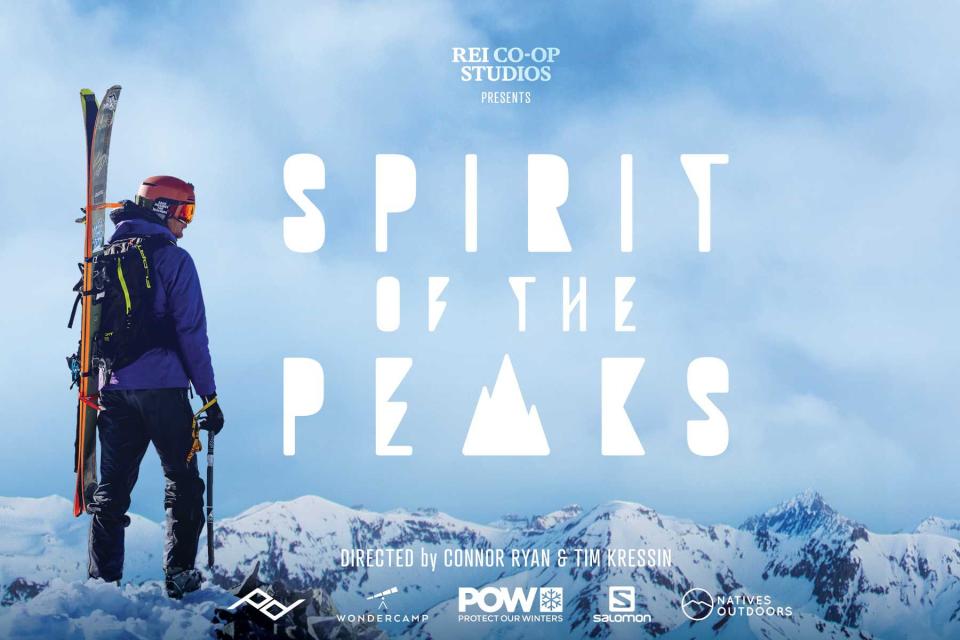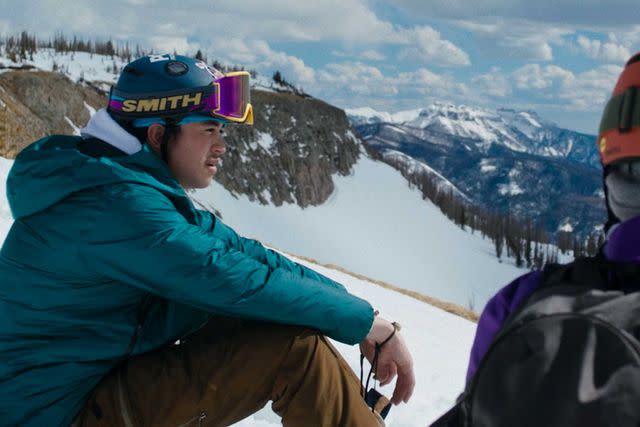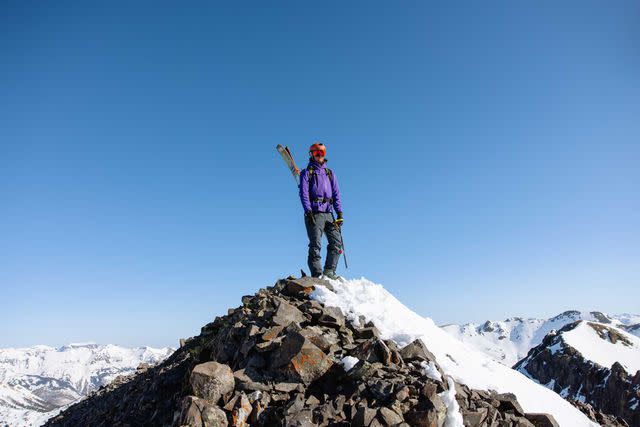'Spirit of the Peaks' Is a Powerful Reminder That the Mountains Don't Belong to Us
It's a must-see film for all skiers, riders, or anyone who loves the mountains.

In 2020, Squaw Valley Ski Resort in California announced plans to change its name. It had operated under the moniker since opening in 1949, until finally, the resort heeded the advice of Northern California's Washoe nation.
"We have been in the area for thousands of years,” Darrel Cruz, of the Washoe Tribe Historic Preservation Office, shared in a statement about the name change. “Olympic Valley is within the ancestral homeland of the Washoe people. The word itself is a constant reminder of the unjust treatment of the Native people, of the Washoe people. It’s a constant reminder of those time periods when it was not good for us. It’s a term that was inflicted upon us by somebody else, and we don’t agree with it.”
Though the resort — now called Palisades Tahoe — put in the work to change the name, the swap was just one more reminder that many mountain destinations in the U.S. certainly do not belong to the skiers and snowboarders who now populate the terrain every winter. And that’s exactly what the ski documentary "Spirit of the Peaks” is all about.
Produced in partnership with REI Co-op Studios, Wondercamp, and NativesOutdoors, and co-directed by Hunkpapa Lakota skier Connor Ryan, “Spirit of the Peaks” is a film that follows Ryan as he opens up about the struggle of being caught between two worlds: the ski and snowboard community and his Indigenous community. He also shares his thoughts on how skiers and snowboarders can better embrace their Indigenous neighbors.

“The ski industry needs to reconcile with the fact that this whole industry happens on Native land. There are places that have been deeply related to Indigenous people for so long,” Ryan said in the poignant film. “There is a responsibility that’s needed on the other side.”
Ensuring skiing and snowboarding is a space for everyone, especially those who originally called these mountains home, is crucial for everyone who straps on two planks or a board. As Vice News reported, in the 2019-2020 ski season, 88 percent of U.S. ski area visitors were white. And Ski Magazine reported that Arizona's Sunrise Ski Resort and New Mexico's Ski Apache are the only two tribally owned and managed ski areas in the country.
"Skiing can be a space for Indigenous people,” Ryan said in "Spirit of the Peaks," adding, “to connect with the land and experience the joy with these elements that have always been a part of our cultures.”

Ryan’s work doesn’t just include having a film crew follow him across mountains. In 2021, he helped Winter Park Ski Resort draft an acknowledgment that it operates on tribal land. (Ryan is an ambassador for the park.)
“Our goal is to get Native folks back into these spaces where we’ve always been,” Ryan told The Gazette about the ski resort’s acknowledgment. “We’re not represented in these sports. You don’t see us in advertisements. We are generally unacknowledged by the industry despite the fact that the industry happened on Native lands that were unlawfully taken from us and occupied.”
Though a victory, there’s still a long way to go for Indigenous groups fighting for recognition around their own lands. In 2018, the Hopi lost a court battle that went all the way to the Arizona Supreme Court, which asked that the Arizona Snowbowl stop using treated wastewater to make the snow as the Hopi people said it damaged the San Francisco Peaks, which the nation considers sacred.
"As we have said before, while the use of treated wastewater to make snow may provide some commercial benefit to the ski resort, the long-term impact is immeasurable on the natural resources, shrines, and springs on the San Francisco Peaks, a sacred site for the Hopi," Hopi chairman Tim Nuvangyaoma told reporters at the time.
In response, Snowbowl's general manager, Rob Linde, shared in 2022 with Travel + Leisure, “Arizona Snowbowl has a deep commitment to our employees, our guests, and our community. This includes the Hopi and the Indigenous peoples that consider the San Francisco Peaks to be a traditional cultural place, and everyone who calls these public lands home. Over the years, we have met with tribal leaders both at Snowbowl and tribal offices, and that outreach will continue.”
As for the film, Ryan wasn’t alone on his adventures through the mountains and their cultural history. For the journey, he brought along professional freeskier Cody Townsend to further highlight how we can all better acknowledge the past and be more inclusive in the future.
“We all cherish the mountains, but [Connor] is a guy whose entire life is focused on skiing and trying to protect the places he skis, because it’s important to who he is as a human,” Townsend said in the film. “Having people like Connor, who may not be the next Seth Morrison in performance but could be the next Shane McConkey in inspiration, is crucially important to the future of the industry."
The team behind the film has no hopes of grandeur or immediate change. Instead, they note that building sustainable change will take time, but it’s time they’re willing to commit, and a conversation they’re proud to start.
“As a white person in America, it’s easy for me to want a straightforward answer with five bullet points and measurable results,” Tim Kressin, co-director, writer, and editor of the film, said in a statement. “And that’s what I was looking for as we asked questions and did interviews. But we kept getting what felt like vague responses with words like ‘learning’ and ‘seeing.’ Sometimes the answer isn’t an action plan, but a perspective shift. A cultural shift. A different view of the land beneath your feet. One where each step is sacred.”
It’s a conversation you can continue, too. Start by learning more about programs like the Telluride Institute’s Ute Reconciliation program or donating to Spirit North, which empowers Indigenous youth to get out and shred, and by educating yourself on skiing’s Indigenous roots. You can also take the advice of Coalition Snow and use their conversation starters to have important talks with your ski and snowboard buddies about the future of the sport. And, of course, you can watch “Spirit of the Peaks” on YouTube now.
For more Travel & Leisure news, make sure to sign up for our newsletter!
Read the original article on Travel & Leisure.

